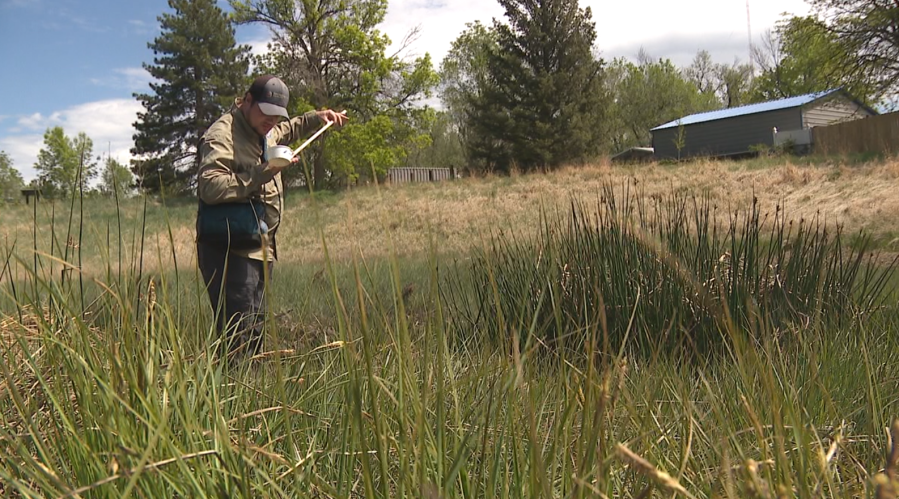Denver is keeping an eye on mosquitoes — and Coloradans should be, too
DENVER (KDVR) — It’s almost summertime in Denver and mosquitoes will soon be prevalent across the metro region. The Denver Department of Public Health & Environment has enacted several measures to combat the pests and keep residents safe.
Brian Tietze is an environmental health investigator with the department. He said that almost anywhere that collects water could be a mosquito habitat — kid’s pools, flower pots and stagnant waterways like ditches are common sites for the bugs to lay their larvae.
Photos: 14 invasive carp removed from Arvada pond
“Ultimately, we’re here to prevent West Nile virus. It is present in Colorado, has been present for about a decade or so,” Tietze said. “So one of our most effective ways to control that is to actually target the larvae of the mosquitoes, so we get out here, we have some product we can apply — just kills them right in their tracks.”
On Monday, Tietze was out and about in Denver for pre-mosquito season scouting. The team will look at areas known to collect water and ensure no larvae are incubating in the water.
If the bugs are found, workers like Tietze will spread a larvicide into the water. The mosquitoes will eat the larvicide and die, but the product is not dangerous to pets, according to Tietze.
There are several actions residents can take to prevent mosquito breeding:
Dump out all standing water from containers, tires, birdbaths, gutters and other collected spots near homes
Limit watering to avoid standing water in yards
Properly maintain fountains and swimming pools to ensure circulation, or apply larvicide as needed to prevent mosquito births
Regularly disturb areas that collect water, such as street gutters, with a broom or vehicle
Limit outdoor activity at dusk and dawn
Wear long sleeves and pants when outdoors
Use a natural insecticide, like lemon eucalyptus oil or DEET
The risk of exposure to West Nile virus is typically low, according to Denver’s health department, but individuals should still protect themselves until mosquitoes grow less active — usually sometime in September or once nighttime temperatures are under 40 degrees.
“Last season we had a historic amount of rainfall in the spring and into the early summer – more rain than we’ve seen in probably 10-20 years,” Tietze said. “Obviously, more rain means more mosquitoes and a greater chance of catching West Nile. The city doubled and tripled our efforts on sites like this that might have flooding.”
FOX31 Weather: View the latest Denver forecasts, maps and radar
April was not dry for the Mile High City: Denver International Airport recorded 3.28 inches of precipitation, which is about 1.6 inches more than the average for April. That did not mean that Denver broke records. The National Weather Service Boulder recorded that the 10th-wettest April was in 1914 with 3.75 inches of rain.
According to the NWS, the Denver area has been maintaining an above-normal amount of precipitation — around 7.33 inches of precipitation had been recorded as of May 13 at DIA. Normally, the city would be closer to 4 inches of rain at this time of year.
For the latest news, weather, sports, and streaming video, head to FOX31 Denver.


